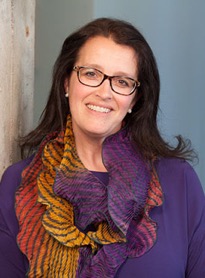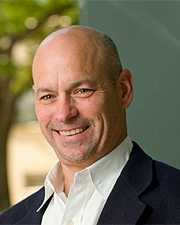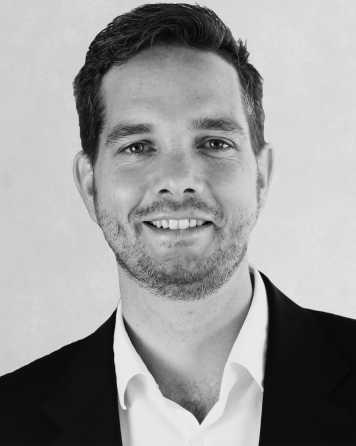ETH PhD Academy on Sustainability and Technology 2019
The interplay between policies, technologies, and organizations in the next phase of sustainable development
To download the call for papers, please Download click here (PDF, 549 KB).
June 23 - June 28, 2019
In 1987, the iconic report Our Common Future outlined the connectedness between the socioeconomic and the biophysical realities of our planet, irreversibly bounding together development and sustainability. Yet, three decades after its publication, progress on sustainable development is advancing only at a slow pace. Two global landmark efforts in 2015, the UN Sustainable Development Goals and the Paris Agreement, marked the beginning of a new phase of sustainable development—a phase that calls for a stronger engagement and commitment from all parts of society. Policymakers will need to design more effective and flexible policies to foster the deployment of sustainable technologies and their integration into existing and new infrastructure. Engineers and entrepreneurs will play a key role in developing technologies and strategies for leveraging the opportunities inherent in emerging social and environmental necessities. Innovative leadership and management will be crucial for embedding sustainable development into companies across all sectors.
This year’s academy is concerned with research on the interplay between policies, technologies, and organizations in this new phase of sustainable development. We provide a unique platform for junior researchers (PhD students and postdoctoral researchers) with a background in engineering, management, economics, and political sciences to present their work to an audience of like-minded scholars and an international faculty with a record of accomplishments in research on energy and climate policy, environmental entrepreneurship and business, and sustainable technologies. Participants obtain detailed feedback on their research design, theoretical approaches, and methodology. In addition, we provide plenty of room for informal discussions and networking with other junior scholars and professors. Students in previous years have come from, amongst others, EPFL Lausanne, the Massachusetts Institute of Technology, Oxford University, Stanford University, the Technical University of Munich, and the University of Cambridge.
Research of the participants should focus on – but is not limited to – the following topics:
- Technology and innovation policy in the context of climate, energy, water, mobility, or food
- Socio-technical or techno-economic assessment of energy-efficient and low-carbon technologies
- Innovation systems; institutional and technological change in sustainable development
- Circular economy, industrial change, and socio-ecological systems
- Environmental entrepreneurship, innovation strategy, and corporate sustainability
- Behavioral and decision-making approaches facilitating sustainable development
The ETH Academy on Sustainability and Technology will take place in a hotel in the midst of the Swiss Alps. To guarantee an intensive learning process, attendance is limited to 15 participants. Third-party funding allows us to offer a participation fee of only CHF 450 (ca. 450 USD) which covers accommodation, meals, and excursions.
Please send your application to Marius Schwarz () and include (i) a cover letter explaining your motivation, (ii) a paper proposal of max. 2 pages, and (iii) your CV. The deadline for application is 15 March 2019. We will send out notification of acceptance by 5 April 2019. Deadline for full paper submission (10-15 pages) is 17 May 2019. For additional information contact Marius Schwarz. We look forward to receiving your application!

Dr. Kelly Sims Gallagher is Professor of Energy and Environmental Policy at Tufts University.
She directs the Climate Policy Lab and the Center for International Environment and Resource Policy at the Fletcher School, Tufts University. From June 2014–September 2015, she served in the Obama Administration as a Senior Policy Advisor in the White House Office of Science and Technology Policy and as Senior China Advisor in the Special Envoy for Climate Change office at the U.S. State Department.
Kelly focuses on energy and climate policy in both the United States and China. She specializes in how policy spurs the development and deployment of cleaner and more efficient energy technologies, domestically and internationally. A Truman Scholar, she has PhD in international affairs from The Fletcher School, and is the author of "China Shifts Gears: Automakers, Oil, Pollution, and Development," and editor of both "Acting in Time on Energy Policy," and "The Global Diffusion of Clean Energy Technologies: Lessons from China.”

Dr. Sally Russell is Associate Professor of Sustainability and Business at the University of Leeds.
She has a background in organizational behavior and organizational change, with a focus on business, sustainability, and the natural environment. Her research focuses on behavior change for sustainability and examines factors that affect individual, group, and organizational responses to environmental issues. In all areas of her research, Sally works closely with industrial partners to ensure that her research contributes scientifically and practically to the development of more sustainable ways of doing business. Sally holds a PhD from the UQ Business School, a graduate certificate in Environmental Management, and a BA in Business Management, both from the University of Queensland.
Her teaching interests lie at the intersection of organizations and the natural environment. She has experience teaching at undergraduate, post graduate, MBA, and executive education. Sally's has teaching experience in the UK, Australia, Hong Kong, and Germany. Her teaching experience has included modules and courses on, for example, Organizational Behavior, Organizational Change, and Environmental Management.

Dr. Thomas J Dean is Professor of Entrepreneurship and Sustainable at the Colorado State University.
Thomas is a pioneer in the field of sustainable and environmental entrepreneurship, authored the first environmental entrepreneurship course in 2001, won accolades for his theoretical examination of environmental entrepreneurship in 2007, and published the first textbook on sustainable venturing in 2013, titled “Sustainable Venturing: Entrepreneurial Opportunity in the Transition to a Sustainable Economy.” His research, teaching, and executive consulting focus on business strategies and economic opportunities present in emerging social and environmental trends. Thomas also led nationally regarded and top-ranked entrepreneurship and sustainable enterprise programs at the University of Tennessee, the University of Colorado, and Colorado State University.
Thomas founded the nationally ranked Sustainable Venturing Initiative, the Sustainable Opportunities Summit, and the Cleantech Venture Challenge, and co-founded the Sustainability, Ethics, and Entrepreneurship Conference. He has taught in MBA Programs and consulted with numerous companies and start-ups. He previously served as Chair of the Entrepreneurship Division of the Academy of Management. Thomas holds a B.S. degree in Environmental Management from Penn State University, an M.B.A. from Oklahoma State University, and a Ph.D. in Strategic Management from the University of Colorado.

Dr. Johannes Meuer is Senior Researcher and Lecturer of Sustainability and Technology at the ETH Zurich.
Johannes’ research focuses on aspects of organizational design and innovation in the context of corporate sustainability. He draws on theories at the intersection of corporate sustainability, strategic management, and technological innovation to investigate strategies for firms to integrate sustainability into their strategies and business operations. Johannes also develops new methodological approaches based on set theoretic methods such as fuzzy set Qualitative Comparative Analysis (QCA), for example to integrate QCA in multi-level models or to extend QCA for the use of systematic comparative process analysis. He also applies these methods in various substantive field such as organization and innovation theory, strategic HRM, and production and operations management.
Johannes holds a PhD from Rotterdam School of Management, Erasmus University and an MSc in International Economics from Corvinus University Budapest. Before joining SusTec, Johannes worked as a SNSF post-doctoral researcher at the University of Zurich, held a position as an associate researcher at the Leibniz GIGA Institute of Asian Studies, and was a visiting fellow of the Cranfield School of Management.